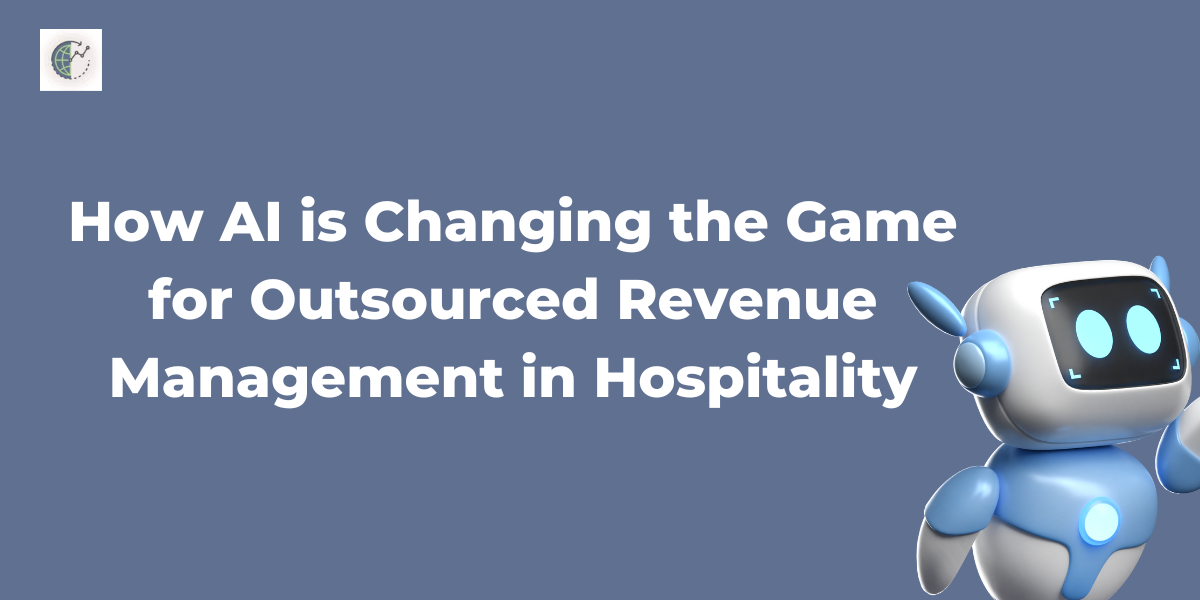The hospitality industry is no stranger to economic challenges, and today, hotels are facing increasing pressures as a result of rising employment costs. With recent and upcoming changes in employer obligations, the financial strain is palpable for many, especially for independent hotels and small groups. For these businesses, effective revenue management is critical for maintaining profitability, yet hiring and retaining skilled revenue managers is increasingly costly and complex. As a result, many hotels are turning to outsourced revenue management services as a viable, flexible solution to stay competitive and optimise their pricing strategies.
Here’s why outsourcing revenue management is becoming an attractive option in the current climate:
1. Rising Employer National Insurance Contributions
The UK government has recently increased Employer National Insurance rates from 13.8% to 15%, a significant jump. Additionally, the secondary threshold for National Insurance is set to decrease from £9,100 to £5,000, which means hotels will be liable to pay National Insurance contributions on an additional £4,100 per employee. For hotel businesses with lean margins, this added expense can have a direct impact on their bottom line.
Hiring a full-time, in-house revenue manager under these conditions may become prohibitively expensive. Outsourcing offers a way to access high-quality revenue management expertise without the burden of employer National Insurance contributions, allowing hotels to control labor costs more effectively while still benefiting from professional revenue management.
2. Rising Minimum Wage Requirements
In April 2025, the minimum wage for workers aged 21 and above will increase to £12.21 per hour, while workers aged 18-20 will see a rise to £10.00 per hour. For hotels, which often rely on entry-level staff in departments like housekeeping, front office, and food service, these increases represent substantial hikes in operating costs. Every role needs to be scrutinised to assess where full-time employment is necessary and where flexibility might yield savings.
For many independent hotels, the role of a revenue manager is not full-time. Revenue management tasks, especially in smaller operations, may not require 40 hours per week to perform effectively. Outsourcing allows hotels to access these services on a part-time or project basis, only paying for the hours and expertise required, without needing to cover the increased wages and benefits that come with hiring a full-time employee.
3. Cost-Efficient Access to Advanced Pricing Technology
Revenue management is a data-driven discipline that relies on sophisticated technology to analyse market trends, forecast demand, and set dynamic prices.
Fortunately, advances in pricing technology mean these tools are more accessible and affordable than ever before. However, while these tools are now within reach financially, using them effectively still requires specialised skills and knowledge.
Outsourcing providers have the expertise to leverage this technology to its fullest potential, often at a fraction of the cost of employing an in-house expert. They bring experience across various markets and can maximise the effectiveness of the systems, delivering results without the need for hotels to invest in full-time resources or in lengthy training periods. In addition, outsourced revenue managers typically have access to a suite of tools and analytics platforms that they can utilise across clients, reducing the overhead for individual hotels.
4. Flexibility in Service and Hours Purchased
One of the main advantages of outsourced revenue management services is the flexibility they offer. Hotels can choose to engage these services on a part-time basis, seasonally, or even per project. This is especially beneficial for independent hotels, where revenue management needs may fluctuate significantly throughout the year.
This flexibility also extends to the scope of services provided. Some hotels may only need assistance with pricing strategies, while others may require a full revenue management solution, including forecasting, market analysis, and competitive positioning. Outsourcing providers can tailor their services to fit the exact needs of each hotel, ensuring that every pound spent delivers tangible value without unnecessary overhead.
5. Focus on Core Business Operations
Running a hotel is complex, with numerous operational and guest experience elements demanding constant attention. By outsourcing revenue management, hotels can shift their focus to core areas like guest satisfaction, property upkeep, and team development. When a specialised team handles revenue management, hotel leadership can trust that optimal pricing and revenue strategies are in place while they concentrate on delivering exceptional experiences and fostering brand loyalty.
Outsourcing not only helps relieve some of the administrative burden but also ensures that hotels are working with experts who have a deep understanding of revenue management and the hospitality industry’s evolving trends.
Conclusion: A Strategic Choice in a Challenging Economic Environment
The rising costs of employment and economic uncertainties make a compelling case for hotels to consider outsourcing their revenue management. By doing so, they can reduce labor costs, gain access to specialised expertise and advanced technology, and retain the flexibility needed to adapt to changing demand patterns. Outsourcing is not only a cost-saving measure; it’s a strategic choice that allows hotels to stay competitive and focused on their primary goal—creating memorable experiences for their guests.
In today’s economic climate, outsourced revenue management offers independent hotels a strategic advantage, providing flexibility, expertise, and peace of mind. This approach allows hotels to remain profitable and resilient amidst rising costs by tapping into specialised skills without the financial weight of expanding in-house teams.
For hotels seeking to optimise resources, partnering with Revenue By Design (RBD) delivers a cost-effective solution to enhance revenue strategies. RBD combines expert insights with advanced technology, enabling hotels to focus on exceptional guest experiences while navigating financial pressures with agility and foresight.
With employment costs continuing to climb, RBD’s adaptable, value-driven services offer independent hotels an efficient path to sustainable growth and a stronger competitive edge.






